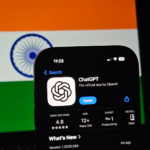Microsoft believes artificial intelligence could inject over $1.2 trillion into Africa’s economy by 2030, marking a turning point for the continent to shift from being a technology consumer to becoming a global innovator.
Abideen Yusuf, Microsoft Nigeria’s Country Manager, said AI holds the same revolutionary potential for Africa that mobile and cloud computing had in previous decades. Quoting a PwC report, he emphasized that AI could add more than $1.2 trillion to Africa’s economy by 2030. He said the key lies in nurturing local talent, ideas, and innovation to help African entrepreneurs and businesses lead in the global AI economy.
Yusuf explained that Africa’s ability to seize this opportunity depends on investing in digital infrastructure, skills, and entrepreneurship. Microsoft is already doing this through platforms like the Microsoft Founders Hub and the AI National Skilling Initiative. He said the continent’s progress with cloud and mobile technology has already democratized access to digital tools, and now AI presents the next big leap toward inclusion and innovation.
Microsoft has played a major role in preparing the continent for this shift. It was the first hyperscale cloud provider to establish an enterprise-grade data centre region in Africa, and its Edge Nodes in Nigeria and Kenya have improved network speed and access to cloud services for local businesses. Yusuf said these investments show Microsoft’s long-term commitment to helping African businesses adopt AI responsibly and securely. Infrastructure, he noted, forms the foundation of this transformation, but developing skills and partnerships is equally essential.
He pointed out that AI’s integration with mobile technology is making smartphones smarter and more adaptive. Governments and companies across Africa are combining AI with 4G, 5G, and IoT to boost productivity and improve public services. Yusuf also mentioned Microsoft’s collaboration with the NVIDIA Inception Programme, which supports African startups creating AI-driven solutions for local needs.
Startups like Wall-X and CoTrust Equity are using AI to deliver personalized financial services, while Terragon, Trucki, and ICE Commercial Power are applying AI in marketing, logistics, and renewable energy. Yusuf said these success stories prove that Africa has the potential to tackle its local challenges using AI while developing innovations that could impact the world.
He noted that Africa’s key problems, financial inclusion, healthcare, and agriculture mirror global challenges. By solving them locally, African innovators can also contribute to global progress. Yusuf concluded that if governments and businesses continue investing in infrastructure, innovation, and supportive policies, Africa could soon become a hub for exporting AI-powered solutions, creating jobs, and driving sustainable economic growth across the continent.
















